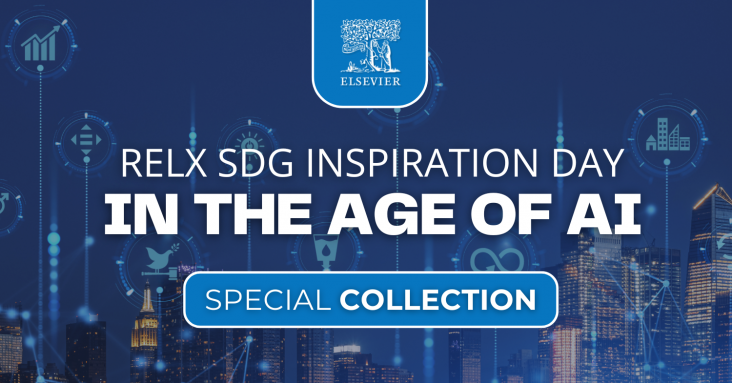Make cities and human settlements inclusive, safe, resilient and sustainable

This year’s RELX SDG Inspiration Day will bring together global AI leaders, corporate representatives, investors, government, and NGOs to explore issues, gain practical insights and be inspired to take action in support of the Global Goals. Elsevier is proud to share this special collection of articles and chapters in celebration of this event.
The annual UN Climate Change Conference advances climate talks, mobilizes action, and can provide a significant opportunity to look at the impacts of climate change as well as innovation and solutions globally. Elsevier is pleased to highlight a large number of freely accessible journal articles and book chapters to help advance research and action against climate change, in support of COP28.

To mark the 50th Anniversary of World Environment Day on 5 June 2023, Elsevier proudly presents a curated list of publicly available journal articles and book chapters in support of this year's theme “Solutions to Plastics Pollution”. Please share and download.

Earth Day is celebrated annually on April 22nd every year to demonstrate support for environmental protection. The theme for Earth day 2023 is Invest In Our Planet. Elsevier is proud to highlight these freely accessible book chapters and journal articles in honour of this event.

The United Nations General Assembly decided that International Day of the World’s Indigenous Peoples would be observed every year on 9th August. On this day, people from around the world are encouraged to help spread the UN’s message on the protection and promotion of the rights of indigenous peoples. Elsevier is pleased to share this special collection of freely available articles to help spread awareness about this important topic. Please feel free to download and share these papers.

On April 22 every year, we celebrate the anniversary of the birth of the modern environmental movement with Earth Day.

This Special Issue highlights publicly available journal articles and book chapters focusing on various humanitarian issues related to the crisis in the Ukraine and other countries.

World Water Day is on 22 March every year. This year’s theme is ‘groundwater’ and draws attention to the hidden water resource that has always been critically important but not fully recognized in sustainable development policymaking. To raise awareness on sustaining groundwater, Elsevier presents a curated list of publicly available journal articles and book chapters. At Elsevier, we are advancing #SDG6 research and ensuring that #groundwater is sustainably explored, analyzed, and monitored

International Women's day is celebrated every year on 8 March and this year's theme is “Gender equality today for a sustainable tomorrow”, recognizing the contribution of women and girls around the world, who are leading the charge on climate change adaptation, mitigation, and response, to build a more sustainable future for all. Elsevier has collated a freely available special issue of book chapters and journal articles to celebrate and highlight International Women's Day.

